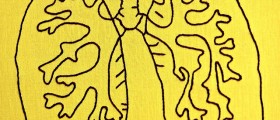
Chronic obstructive pulmonary disease, shortened as COPD, is a disease of the lungs, known to cause narrowing or blockage of the airways. Patients usually get this disease after exposure to airway irritants. It can be occupational exposure, but also air pollution, smoking or even secondhand (passive) smoking.
Stages of COPD
COPD can be divided into 4 stages, depending on the severity of the symptoms, advancement of the disease and spirometry measurement of FEV1 (forced expiratory volume in 1 second, used to detect pulmonary function). Stage I of COPD is also known as mild, stage II is moderate COPD, while stages III and IV are known as severe and very severe chronic obstructive pulmonary disease.Lifestyle Changes for Mild COPD
People suffering from COPD may benefit their health by several lifestyle adjustments. A person whose COPD is not yet advanced should quit smoking immediately, for this is one of the most important things when it comes to prevention and treatment of chronic obstructive pulmonary disease. People who were able to quit cigarettes were healthier and lived longer than those who weren't able to do so. Also, these patients felt better and their disease was found to be progressing more slowly than in those who still smoked.
Also, make sure to eat properly and make time for healthy nutrition. Your body needs energy and nutrients in order to fight against infections and enable proper breathing, so make sure you are eating the right things. Physical exercise on a daily basis is also known to contribute significantly to the health of people diagnosed with COPD.
Another thing is positive mind frame. Stay positive and believe that everything will be all right and you will be able to cope with your illness much easier.
How to Treat End Stage COPD?
Stage IV COPD patients usually have bad prognosis and many of them, about 80% won’t make it for 4 years. However, these patients could still be treated and don’t have to be bound to bed and oxygen.
Commonly prescribed medications for patients diagnosed as end stage COPD are: bronchodilators, opiates and inhalation glucocorticoids. There are short and long-acting bronchodilators and both of these medications can be prescribed for COPD patients. To improve dyspnea, doctors usually refer to morphine, while inhalation glucocorticoids are given to patients with repeated exacerbations of COPD.
Besides these drugs, supplemental oxygen, NIPPV (non-invasive positive pressure ventilation) and pulmonary rehabilitation may also be helpful, as well as some nutritional and psychological counseling and social support.

















Your thoughts on this
Loading...